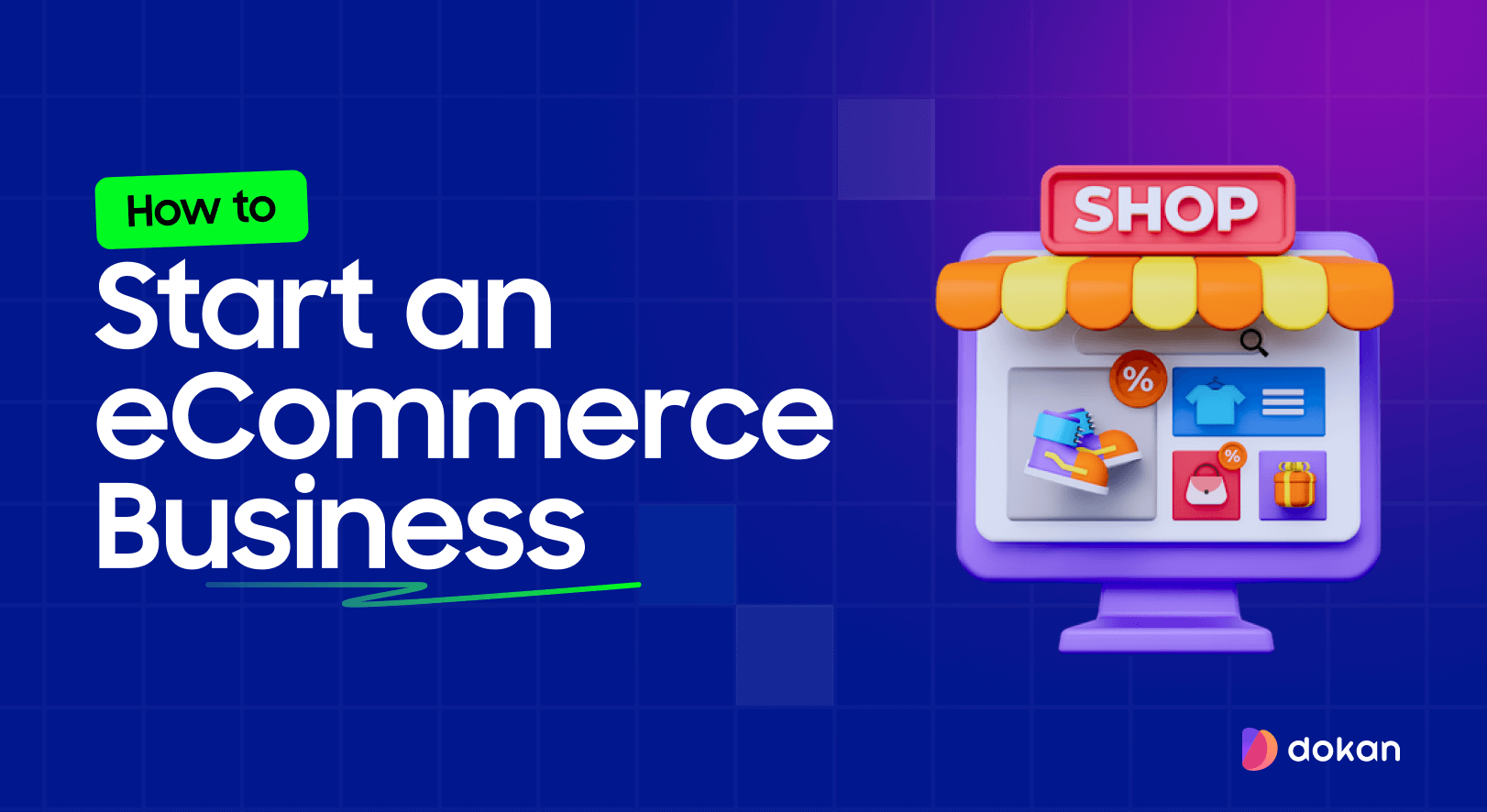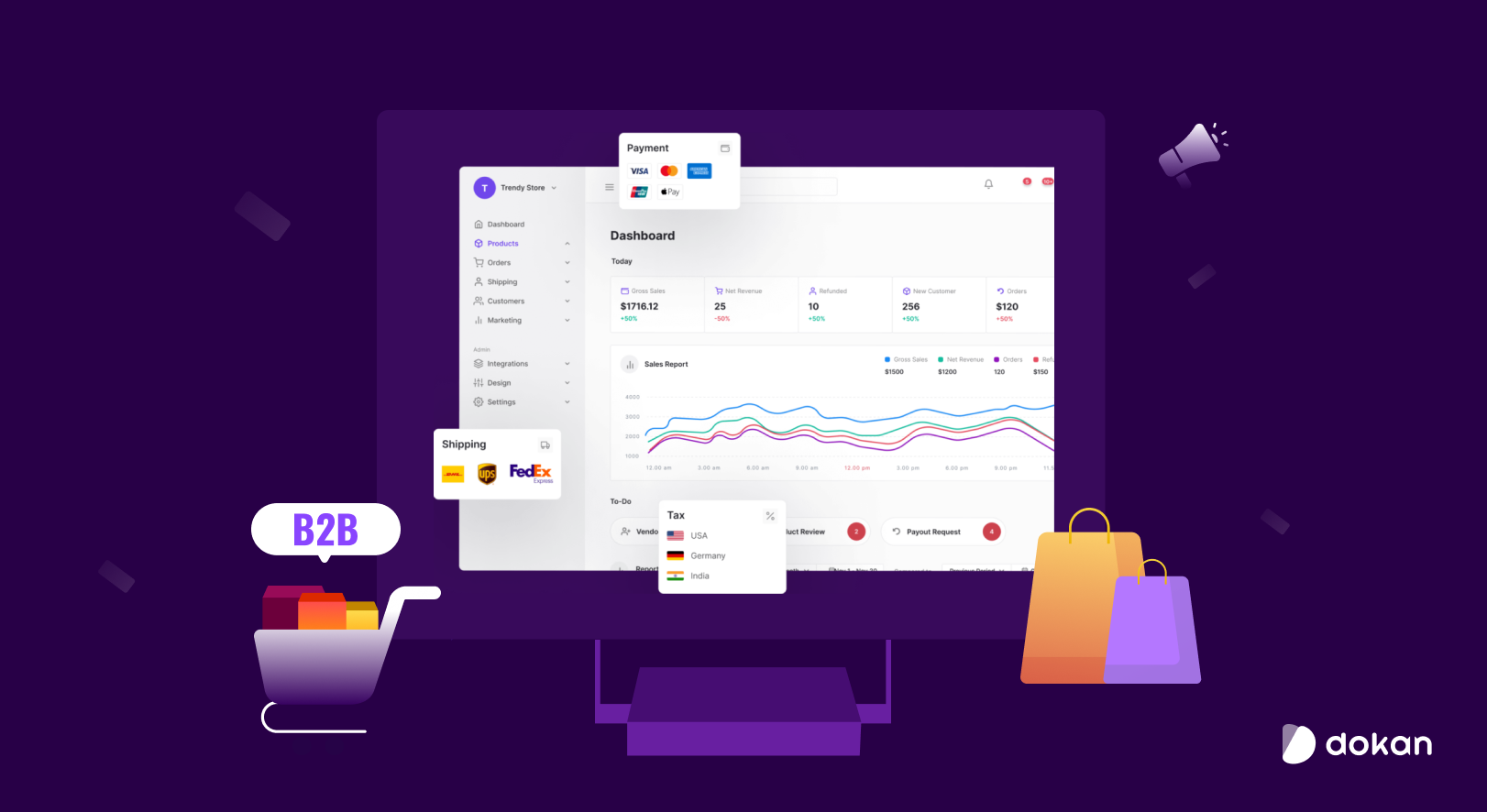Numerous online businesses emerge daily, but how many survive? Studies show that around 80% of eCommerce businesses fail to thrive.
However, you can still establish a profitable business with proper knowledge and niche-specific strategies. For example, before starting any business, you should-
- Identify your target audience and understand their needs, preferences, and behaviors.
- Analyze your competitors to identify gaps in the market and determine what sets your business apart.
Once you are ready with your products to sell, then-
- Develop a comprehensive marketing strategy to promote your business.
- Explore online and offline marketing channels suitable for your target audience.
This way, you must focus on different areas to streamline your business at various stages. As an aspiring entrepreneur, you may overwhelmed with hundreds of business strategies floating on the internet.
To help you, we’ll share 35 tips and tricks in different categories to make your business successful. We assure you that by reading this blog, you’ll learn at least one new strategy to attract more customers, increase sales, and build a loyal customer base.
So, let’s dive in and start transforming your store today!
Here are the categories we have divided the tips into-
- Tips for Starting a Small Business
- Financial Tips for Small Business Owners
- Marketing Tips for Small Business
- SEO Tips for Small Businesses
- Tax Tips for Small Businesses
- Website Design Tips for Small Businesses
- Cyber Security Tips for Small Businesses
- Social Media Marketing Tips for Small Business
- Tips for Managing Small Business Inventory
- Tips for Managing Small Business Online Marketing Campaigns
Tips for Starting a Small Business

Starting a small business can be both thrilling and challenging. You can turn your business idea into a successful venture with the right approach and mindset. Here are some essential tips to help you get started:
1. Develop a Strong Business Plan
A well-crafted business plan is crucial. It should outline your business idea, target market, unique selling proposition (USP), marketing strategies, financial projections, and operational plans. A solid plan will give you a clear business vision and guide you to reach your business goal.
2. Understand Your Market and Customers
Conduct market research to understand your potential customers and competitors. These findings allow you to optimize your products, services, and marketing strategies more effectively. You can categorize your target customer base into several groups and build buyer personas for each group.
3. Start with a Strong Brand Identity
A big business starts small.
Richard Branson, business magnate, investor and author
With the increasing number of eCommerce businesses, it becomes crucial to differentiate yourself from competitors. You may include a unique business logo, follow a trendy design, a particular color pattern, or a tagline to make your brand identity. It is also essential to set a distinctive brand voice and values. So you can connect with your potential customers on a deeper level and build trust and loyalty.
4. Understand Legal Requirements
Ensure you’re aware of the legal requirements for starting a business. Such as registrations, licenses, and taxes. Compliance is critical to avoiding fines and complications down the road
Financial Tips for Small Business Owners

Optimized financial management is the key to a business’s success. However, you will face challenges every day in expected and unexpected ways. As a beginner, your target should be to secure a stable profit margin within a reasonable budget.
Here are several financial tips tailored for new business owners:
5. Maintain a Strict Budget
Keep a detailed budget that includes all your expected expenses and revenues. This will help you in making informed financial decisions and avoid overspending. QuickBooks can be helpful if you’re operating your business on WordPress. This integration offers valuable insights into your finances.
6. Understand Your Cash Flow
Cash flow is the lifeblood of your business. You must clearly understand how much money is coming in and going out. This understanding will help you make decisions about paying bills, purchasing inventory, and investing in growth opportunities.
7. Keep Business and Personal Finances Separate
Open a business bank account and use a business credit card for expenses to keep your personal and business finances distinct. This practice helps you maintain a clear financial picture of your business and protects your assets.
8. Build a Financial Cushion
Aim to have a reserve fund or emergency savings to cover unexpected expenses or financial downturns. This fund can help you navigate tough times without derailing your business operations.
9. Manage Debt Wisely
For your business growth, you may need to take out debt. There is no problem with that. But it’s important to manage it wisely. Understand the terms of your debts and prioritize paying off high-interest debts as quickly as possible to reduce overall costs.
It’s better to discuss with experts to avoid common pitfalls and mistakes. Don’t hesitate to consult with financial advisors, accountants, or business consultants. Professional advice can help you navigate complex financial decisions, tax planning, and compliance issues.
Website Design Tips for Small Businesses
Whether you’re operating an online business or a physical store, an online version of your business is necessary for today’s business surface. A well-designed website serves as the digital face of your business and can significantly impact how potential customers perceive your brand.
Here are some practical website design tips you can consider for your small businesses:
10. Keep It Simple and User-Friendly
Your website should be easy to navigate with a clear and straightforward layout. Ensure your menu is intuitive and users can easily find what they want with minimal clicks. Also, set your website’s color palette based on your industry type and visitor preferences.
11. Incorporate Clear Calls-to-Action (CTAs)
CTAs guide your visitors on what to do next, whether purchasing, signing up for a newsletter, or contacting you for more information. Make your CTAs clear, compelling, and easy to find. Use contrasting colors and actionable language to make them stand out.
12. Utilize Social Proof

Incorporate testimonials, reviews, and case studies to build trust with potential customers. Social proof can significantly influence purchasing decisions and enhance your business’s reputation.
A website is not a set-it-and-forget-it tool. Regularly update your content, products, and blog to keep your site fresh and relevant. This not only improves user engagement but also encourages repeat visits.
SEO Tips for Small Businesses
Having quality products is not enough to survive on today’s competitive edge. You have to make it easier so your target audience can easily find you and buy your products.
Below are some valuable tips to improve your visibility and drive traffic to your website–
13. Conduct Keyword Research
Your first step would be to conduct effective keyword research. This process involves identifying your industry’s most relevant and frequently searched keywords. Incorporating these keywords into your website’s content, meta tags, and headings can increase your chances of ranking higher in search results.
14. Create High-Quality Content
Content is king when it comes to SEO. Creating high-quality, informative, and engaging content attracts visitors and helps search engines understand what your website is about. Optimize your content with relevant keywords, use headings and subheadings, and include internal and external links to enhance the user experience and improve your search engine rankings.
15. Improve Website Speed and Mobile Responsiveness

In today’s digital age, users expect websites to load quickly and be mobile-friendly. Slow-loading websites and poor mobile experiences can lead to high bounce rates and a loss of potential customers. Ensure your website is optimized for speed by compressing images, minifying code, and caching plugins.
Ensure your website is responsive and displays correctly on different devices, including smartphones and tablets.
Marketing Tips for Small Business
After setting all the essential elements of your business, it’s time to promote your products or services. Therefore, people will come to know about your brand, and it will boost your revenue.
16. Utilize Email Marketing
Email marketing remains one of the most effective marketing strategies. Collect email addresses from your website, social media, and in-person events. Use email newsletters to keep your audience informed about new products, special offers, and valuable content. Platforms like Mailchimp integrate well with WordPress, allowing you to create and send emails to your subscribers easily.
17. Encourage Word-of-Mouth and Referrals
Word-of-mouth is a powerful marketing tool, especially for small businesses. Encourage your satisfied customers to spread the word about your business. Consider creating a referral program that rewards customers for bringing in new business. This can significantly increase your customer base at a relatively low cost.
18. Participate in Local Community Events
Engaging with your local community can be a great way to build brand awareness. Participate in or sponsor local events, fairs, and markets. This shows your commitment to the community and puts your business in front of potential local customers.
19. Use Paid Advertising Wisely
While organic reach is significant, paid advertising can also be a valuable tool in your marketing arsenal. Platforms like Google Ads and Facebook Ads allow you to target your advertising specifically to reach your desired audience. Start with a small budget, test different ads, and gradually increase your investment based on what works best for your business.
20. Focus on Customer Service
Outstanding customer service can set your small business apart from competitors. Responsive and helpful customer service can lead to positive reviews and repeat business. Ensure your customers can quickly contact you through your website, social media, or email and promptly respond to their inquiries.
We see our customers as invited guests to a party, and we are the hosts. It’s our job every day to make every important aspect of the customer experience a little bit better.
Jeff Bezos
Use analytics tools to track the performance of your marketing efforts. Integrated with your WordPress site, Google Analytics can provide insights into your website traffic, user behavior, and the effectiveness of your SEO strategies. Analyze this data regularly and be prepared to adjust your marketing strategies accordingly.
Want to build a profitable online business? Check out why eCommerce businesses fail & how to resolve them.
Social Media Marketing Tips for Small Business

Social media is another powerful tool for reaching a larger audience, increasing brand awareness, and driving sales. Here are some tips for small businesses to effectively use social media for marketing:
21. Identify the Right Social Media Platforms
Each social media platform serves a unique purpose and targets specific audience demographics and preferences. For example, Instagram is a visual-centric platform for sharing photos, videos, and stories. Research and identify which platforms your customers are most active on and invest your time and resources accordingly. This will allow you to reach the right audience with your messaging and drive engagement.
22. Create Compelling and Shareable Content
Social media is all about capturing attention and driving engagement. Create compelling and shareable content that resonates with your audience. This may include eye-catching visuals, informative videos, entertaining stories, or interactive polls. Encourage your followers to like, comment, and share your content to increase its reach and visibility.
23. Engage with Your Audience
Building a loyal customer base requires active engagement on social media. Respond to comments, messages, and mentions promptly and authentically. Show your customers that you value their feedback and appreciate their support. Additionally, actively participate in relevant conversations and join industry-related groups to expand your network and establish your brand as a thought leader.
Read More: The right ways to utilize Quora for marketing to supercharge your marketing strategy.
Tips for Managing Small Business Online Marketing Campaigns
Managing marketing campaigns can be challenging. But with the right strategies, you can effectively reach your target audience and drive results. Here are some tips for managing small business online marketing campaigns:
24. Define Your Target Audience
Before launching any marketing campaign, you must define your target audience. Understanding your ideal customers will help you modify your content, choose the right channels, and create compelling offers that resonate with them. Conduct market research, analyze customer data, and create buyer personas to gain insights into their demographics, interests, and pain points.
25. Personalize Your Marketing Efforts
Personalization is the key to making your marketing efforts stand out. Use customer data to personalize your messaging, offers, and recommendations. Address your customers by their names in emails, recommend products based on their previous purchases, and send personalized offers on special occasions. This level of personalization shows your customers that you value their individuality and can significantly improve their shopping experience.
26. Track and Analyze Your Results
After conducting a marketing campaign, it’s crucial to track and analyze your marketing campaign results to assess performance, identify areas for improvement, and optimize future campaigns. Use analytics tools to measure key performance indicators (KPIs) such as website traffic, conversion rates, and customer engagement.
Analyzing these metrics will help you identify what’s working and what’s not. It allows you to make data-driven decisions and optimize your future marketing efforts.
Tips for Managing Small Business Inventory
Inventory management is a crucial aspect of running an eCommerce business. It involves tracking and managing the flow of goods from suppliers to customers. Effective inventory management helps companies to minimize stockouts, reduce excess inventory, and optimize order fulfillment processes.
Here are some tips for effectively managing small business inventory:
27. Implement Inventory Management Software
Utilize inventory management software to track inventory levels, sales, and purchases. You can also choose a system that integrates with your POS (Point of Sale) system and eCommerce platform for seamless data synchronization.
28. Conduct Regular Inventory Audits
Perform regular physical inventory audits to reconcile recorded inventory levels with actual stock. Conduct cycle counts or spot checks to identify discrepancies, address inaccuracies, and prevent stockouts or overstock situations.
29. Prioritize Inventory Classification
Classify inventory items based on demand variability, value, and turnover rate. Use ABC analysis to categorize items into A (high-value, low-quantity), B (medium-value, medium-quantity), and C (low-value, high-quantity) categories for more efficient management.
Cyber Security Tips for Small Businesses

Small businesses often face cyberattacks as they sometimes lack the resources to protect themselves effectively. You should pay extra attention to protect sensitive data, maintain customer trust, and safeguard against cyber threats.
Here are some essential cybersecurity tips for your startups:
30. Use Strong Passwords and Multi-Factor Authentication (MFA)
Enforce complex passwords for all accounts and systems and encourage employees to use password managers to store and manage passwords securely. Implement multi-factor authentication (MFA) wherever possible to add an extra layer of security to account logins.
31. Keep Software Updated
Regularly update operating systems, software applications, and antivirus programs to patch security vulnerabilities and protect against known threats. Enable automatic updates whenever possible to ensure the timely installation of security patches.
32. Secure Network Infrastructure
Implement firewalls, intrusion detection systems (IDS), and secure Wi-Fi networks to protect against unauthorized access and cyber-attacks. Segment network resources and restrict access to sensitive data based on job roles and responsibilities.
As a precaution, perform regular backups of critical business data and systems to protect against data loss due to cyber attacks, hardware failures, or natural disasters.
Tax Tips for Small Businesses
Tax management is an integral part of overall financial planning for small businesses. Small businesses are legally required to comply with tax laws and regulations. Failure to do so can result in penalties, fines, and legal repercussions.
33. Keep Accurate and Detailed Records
Maintain meticulous records of all your income and expenses. This will help you prepare tax returns more accurately. You’ll get detailed documentation for the audit. To simplify the process, use accounting software to streamline record-keeping and ensure accuracy.
34. Understand the Tax Implications of Business Structure
The structure of your business (sole proprietorship, partnership, LLC, or corporation) has significant tax implications. Consult with a tax professional to understand the benefits and obligations of your chosen structure and whether a different structure might offer better tax advantages.
35. Leverage Tax Credits
Investigate whether your business qualifies for any tax credits. Tax credits are available for specific activities like research and development, energy efficiency improvements, and hiring employees from certain target groups.
These are the 35 profitable tips you can consider for your growing online business.
By implementing these strategies, you can establish a robust system to attract more customers, increase sales, and build a loyal customer base for your eCommerce business.
Remember, success takes time and effort, so don’t get discouraged if you don’t see immediate results. Stay consistent, adapt to changes in the market, and always prioritize customer satisfaction.
Here is a summary of the business tips according to their category-
| Category | Tips |
|---|---|
| Starting a Small Business | – Develop a Strong Business Plan – Understand Your Market and Customers – Start with a Strong Brand Identity – Understand Legal Requirements |
| Financial Tips | – Maintain a Strict Budget – Understand Your Cash Flow – Keep Business and Personal Finances Separate – Build a Financial Cushion – Manage Debt Wisely |
| Marketing Tips | – Utilize Email Marketing – Encourage Word-of-Mouth and Referrals – Participate in Local Community Events – Use Paid Advertising Wisely – Focus on Customer Service |
| SEO Tips | – Conduct Keyword Research – Create High-Quality Content – Improve Website Speed and Mobile Responsiveness |
| Tax Tips | – Keep Accurate and Detailed Records – Understand the Tax Implications of Business Structure – Leverage Tax Credits |
| Website Design Tips | – Keep It Simple and User-Friendly – Incorporate Clear Calls-to-Action (CTAs) – Utilize Social Proof – Regularly update your website content |
| Cyber Security Tips | – Use Strong Passwords and Multi-Factor Authentication (MFA) – Keep Software Updated – Secure Network Infrastructure – Perform regular backups of critical data |
| Social Media Marketing Tips | – Identify the Right Social Media Platforms – Create Compelling and Shareable Content – Engage with Your Audience |
| Inventory Management Tips | – Implement Inventory Management Software – Conduct Regular Inventory Audits – Prioritize Inventory Classification |
| Online Marketing Campaign Tips | – Define Your Target Audience – Personalize Your Marketing Efforts – Track and Analyze Your Results |
Reach New Heights with These Effective Business Tips
We’ve listed all the above points from our last 10 years of experience working with numerous companies worldwide.
Whether a brick-and-mortar shop or an online store, these strategies boost your success and drive growth. We’ve got you covered, from optimizing your website for search engines to implementing effective marketing campaigns.
Remember, success doesn’t happen overnight. But your small business can reach new heights with the right strategies and determination.
Do you want to add any tips for small business owners from your real-life experience? It would be helpful for new entrepreneurs.
Subscribe to
Dokan blog
We send weekly newsletters, no spam for sure!







Leave a Reply